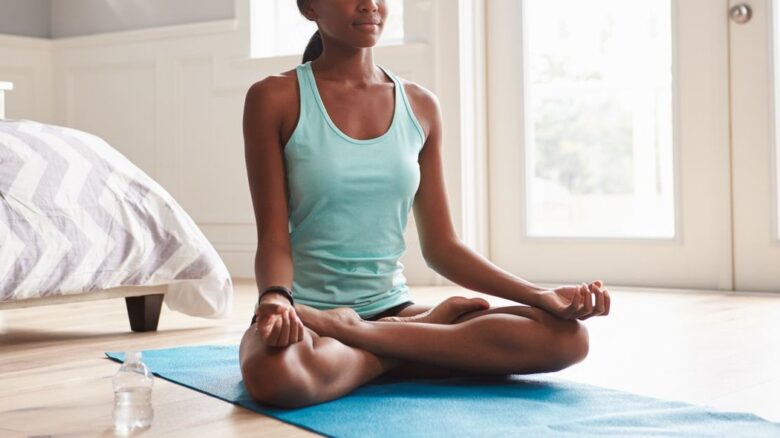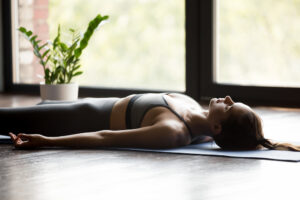In today’s fast-paced world, stress is a ubiquitous part of many people’s lives. It impacts both their physical and mental health. Work, family, financial, and social responsibilities can all generate significant pressure, leaving individuals with a sense of helplessness. But living an active lifestyle is one of the best ways to break this vicious cycle and restore one’s mental balance. Scientists have proven that an active lifestyle—making regular time for physical activity in your daily routine—can help you feel better, have more energy, and reduce your stress levels.
An active lifestyle has long-term benefits, such as helping your body regulate hormones, manage your weight, and improve your sleep. This benefit is different from short-term stress relief. Through active activities, people can build natural stress buffers, strengthen their bodies, and better cope with daily challenges. Understanding the connection between exercise and stress relief can make an active lifestyle a long-term approach, leading to a better and happier life.
The Science Behind Stress and an Active Life:
When you’re stressed, your body undergoes a complex reaction known as the “fight or flight” response. This causes your heart rate and blood pressure to rise, as well as your cortisol and adrenaline levels. While this response is important in times of crisis, chronic stress can lead to health problems such as anxiety, depression, and heart disease. An active lifestyle counteracts these effects by releasing endorphins, often called the body’s “natural mood enhancers.”
Exercise can also lower cortisol levels, helping restore hormone balance. Research also indicates that exercise can improve memory, concentration, and problem-solving skills, thereby enhancing brain function. This creates a virtuous cycle because it calms people down and helps them better cope with stressors. Understanding the science behind this phenomenon makes it clear why an active lifestyle is more than just exercise; it’s a natural, simple, and effective way to manage stress.
An Active Lifestyle as a Method for Stress Relief:
An active lifestyle is a natural way to release pent-up energy and emotions, unlike medications or short-term fixes. People can express their anger through activities like walking, jogging, yoga, dancing, and even gardening. This helps you forget stressful events and gives you a sense of accomplishment and control. Regular exercise helps the nervous system function better, reducing muscle tension and improving circulation. These adjustments can lead to a calmer and more relaxed mind over time. Furthermore, spending time outdoors in the sun can increase your vitamin D levels and make you feel better. When people maintain a consistently active lifestyle, stress becomes less overwhelming and more manageable. This helps them find emotional stability and inner peace.
An Active Lifestyle Can Help You Build Emotional Strength:
One of the benefits of an active lifestyle is that it can make you more emotionally resilient. People who stay active generally cope better with problems, recover more quickly from setbacks, and have a more positive outlook on life. Exercise promotes self-discipline, regularity, and perseverance, all of which are crucial for managing stress. For example, following a workout routine can help you feel in control of your life, even when things seem out of control. Group activities, such as sports or fitness classes, are also beneficial because they offer social support, help you make friends, and reduce loneliness. Active interaction with others can improve your mood and help you cope with daily stressors with confidence and strength. An active lifestyle is not only beneficial for your body but also strengthens your mind and soul, laying a solid foundation for managing stress.
The Role of Active Living in Better Sleep and Relaxation:
Stress and poor sleep quality are closely linked; the two reinforce each other, creating a vicious cycle. An active lifestyle is crucial for breaking this pattern, as it can help you sleep better and feel more relaxed. Exercise helps regulate your circadian rhythm, making it easier to fall asleep and sleep through the night. It can also alleviate insomnia by lowering stress hormones and relaxing the body. A good night’s sleep not only restores your physical energy but also helps your brain process emotions and recover from the day’s stresses. People who incorporate physical activity into their daily routine generally report feeling more alert, focused, and energetic. Better sleep, combined with lower stress and a more balanced daily routine, suggests that an active life is crucial for both your physical and mental health.
Long-Term Health Benefits of an Active Lifestyle to Reduce Stress:
The benefits of an active lifestyle go beyond short-term stress relief. It also offers long-term protection against chronic diseases. Chronic stress can lead to high blood pressure, a weakened immune system, obesity, and cardiovascular disease. An active lifestyle helps minimize these risks by reducing stress. Exercise is beneficial for the heart, bones, and muscles, and also boosts metabolism. These health benefits not only extend lifespan but also improve it. When people exercise regularly, they are less likely to use unhealthy coping mechanisms, such as smoking, excessive drinking, or overeating, to cope with stress. Instead, they learn to develop a better relationship with their body and mind, which will lead to long-term health. Therefore, committing to an active lifestyle is investing in a better, happier future.
How to Incorporate an Active Lifestyle into Your Daily Life:
You don’t have to sign up for an expensive gym membership or follow a strict workout plan to live an active life. Small actions, built up over time, can have a big impact. There are many simple ways to stay active, like taking a short walk or bike ride instead of the car, taking the stairs instead of the elevator, or stretching during work breaks. Dancing, swimming, and walking are all fun and exciting ways to break up your daily exercise routine. Consciously cleaning your house or garden counts as exercise. The key is to find something enjoyable and sustainable that fits into your life. These small steps, built up over time, can form a powerful habit that naturally reduces stress and improves your health.
Conclusion:
Stress is an undeniable part of our lives, but it doesn’t have to dominate our feelings. Living an active life is a natural, effective, and lasting strategy for managing stress and improving our health. People who exercise regularly feel better, experience less anxiety, sleep better, and are better prepared for life’s challenges. An active lifestyle is better for your long-term health than short-term solutions. It protects both your physical and mental well-being. Staying active, whether it’s through regular exercise or simply moving daily, allows people to regain control of their mental and physical balance. An active lifestyle is a timeless response to the constant stress of modern life. It transforms everyday events into powerful tools for achieving peace, strength, and happiness. Living an active life isn’t just about staying healthy; it’s about creating a healthy life, both physically and mentally.
FAQs:
1. How much exercise do you need to reduce stress?
Experts recommend at least 150 minutes of moderate-intensity exercise per week, including brisk walking or cycling, to see noticeable changes in stress.
2. Can something as simple as a walk really relieve stress?
Yes, even something as simple as a walk can help you relax, improve circulation, and release endorphins, all of which can reduce stress.
3. Can being active also help relieve anxiety and depression?
Of course. Research shows that regular physical activity can alleviate symptoms of anxiety and depression by balancing neurotransmitters and improving mood.
4. What’s the best time of day to exercise to relieve stress?
The best time is whenever you can exercise regularly, although many people find that exercising in the morning energizes them and helps them relax in the evening.
5. Can an active lifestyle replace stress-reducing therapies at work?
An active lifestyle can be helpful, but if you’re stressed, anxious, or depressed, you may still need professional help. A combination of both approaches often works best.




